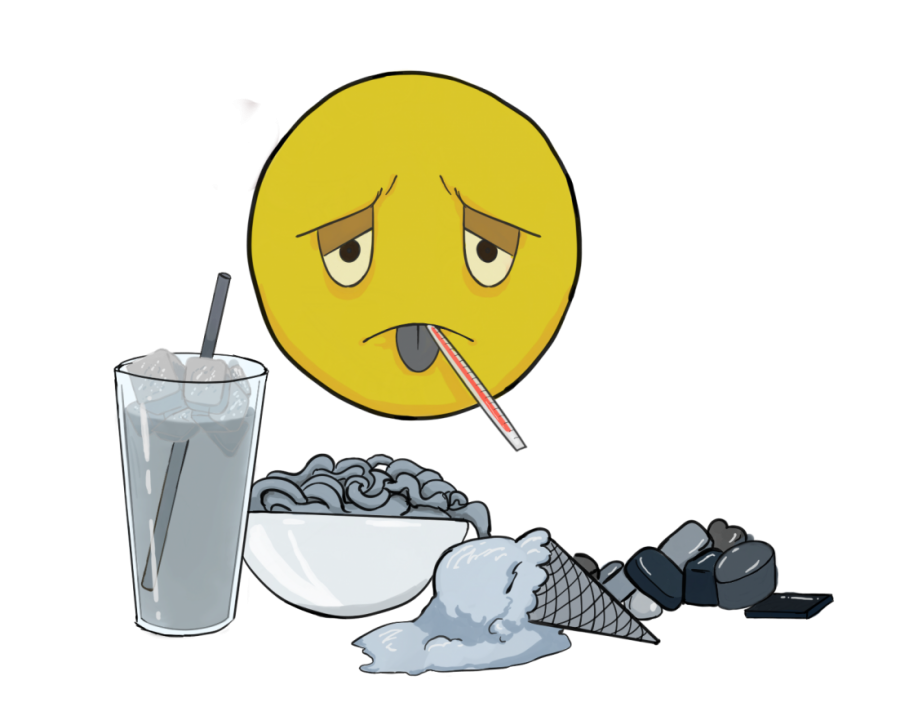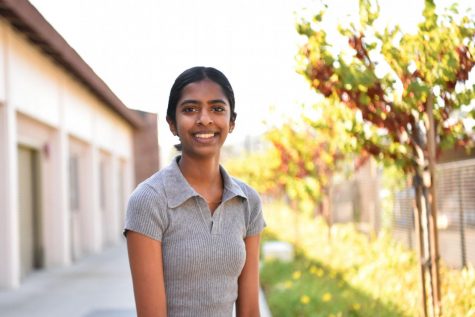My COVID repercussions
Sharing the untimely and unexpected effects of contracting COVID-19
November 27, 2021
For the past year, we’ve been trying to move past the effects of COVID-19 as new cases decrease and vaccination rates increase. But it’s hard for me to move on when I haven’t been able to taste my favorite spicy pad thai in eight months. After contracting the virus in March of 2021, I thought I would be fine. I thought I was mentally prepared for this moment since the school had shut down in 2020, and I remember thinking to myself with uncertainty, ‘It’s just like the common cold.’
Being sick was weird, to say the least. I barely had any symptoms for the first week — it was the basic sore throat, runny nose and phlegmy feeling. But in some ways, it felt different. I was constantly dizzy, hot and extremely fatigued. Imagine feeling like you had just run a mile, were ravenous and felt like you were about to drop – for a week straight.
Then it hit me, on the third day since I knew that I had tested positive. Lugging myself down the stairs, I slid into the dining table chair still feeling dizzy. My mom, who was also positive for COVID-19, put a plate of food in front of me. While I don’t remember exactly what the food was, the terrifying moments that followed are ingrained in my mind. My eyes widened as I took a bite and realized what just happened. “Amma! I don’t taste anything, like, absolutely nothing!” I yelled across the room. My mom looked at me with a blank stare, aware that she had used multiple spices. At that moment, I realized that everything I had heard about COVID-19 and losing taste was true, and I was going to have to deal with it.
During the following months, I discovered all the different foods I could no longer taste. Blue jasmine ice cream from Tin Pot Creamery, iced coffee and spicy pad thai noodles all tasted the same — like nothing. My favorite foods started to slip away from me. Eventually, I had gotten so used to not tasting to the point that I started imagining tasting things. My brain already knew how certain foods tasted; for example, I recognized sweetness when eating chocolate. This made me believe that I could taste the food I was eating when, in reality, I was imagining the flavors from past experiences and memories.
While my taste was still limited, I came across a box of assorted chocolates that someone had given my family. I personally love chocolate and don’t have much of a preference when it comes to the type. I was craving chocolate — I reached into the box and grabbed a random one. After popping it into my mouth, my brain immediately became confused. I could tell it was a chocolate shell with some sort of filling inside, but I couldn’t figure out what it was. Caramel? Fruit filling? More chocolate? Mousse? After looking at the box, I saw it had a strawberry filling, and suddenly, like magic, I was able to taste the strawberry — or at least, remember the taste.
Unfortunately for me, I didn’t only lose my taste — I also lost my appetite. This wasn’t too surprising, because when you take away the taste of food, it’s really just a process of chewing and swallowing, which feels more like a chore. Eating isn’t something I enjoy anymore, so I actively try to avoid it. But eventually, I do feel hungry, so I eat something just for the sake of not feeling that empty pit in my stomach. My desire to eat turns on and off. Some days I crave certain foods, while on other days, I don’t even want to think about eating.
Over half a year later, the effects of contracting COVID-19 still affect my daily life. The possibility that I might never be able to taste my favorite foods again, or to the extent of which I used to, is scary to me. But I remain optimistic about the chance that I might wake up tomorrow and be able to taste again and finally, get to enjoy that strawberry chocolate or a delicious bowl of pho that I’ve been dreaming of.


















